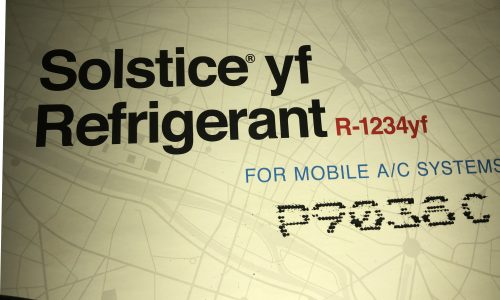
What You Need to Know About the Changes in Standard Refrigerant for Automobile AC Systems
May 17, 2019 10:12 pmThere have been a lot of changes in the world of air conditioning refrigerant lately. The old standby for vehicles was R1134 refrigerant, but that has since changed to the new R1234YF refrigerant. What exactly does this mean, and how do the two differ from each other?
Here’s an overview of what you should know, courtesy of a mechanic in Madison, TN.
A background on the refrigerants
The old R-12 refrigerant was first developed in 1935, and as you might expect, there have been a whole lot of changes and upgrades to the technology in the field since then. Today, the most important consideration that exists for refrigerant is environmental sustainability, as manufacturers are looking to do whatever they can to improve efficiency and to cut down on the effects that vehicles can have on climate change. This is what has resulted in the R-1234YF refrigerant.
This new refrigerant option is the latest replacement on the market for R-134a automotive refrigerants. It’s very similar in many ways to its predecessor, but has a global warming potential (GWP) of just 1 compared to R-134a’s GWP of 1430. With these benefits now available, it didn’t take long for major automakers like General Motors, Cadillac, Chevrolet and Buick to announce that they would start using this refrigerant for all vehicles manufactured in the United States. Many other manufacturers have followed suit since then, and the EPA also decided to schedule all manufacturers of vehicles to switch over to this refrigerant by 2021.
Consumer effects
So, as a car owner, how exactly do these changes affect you?
If you own an older vehicle that does not take this refrigerant, you shouldn’t be greatly affected by the changes. R-134a refrigerant can still be used and will still be produced, it just won’t be manufactured in as great of numbers after the full switchover occurs. In addition, even older R-12 systems are still eligible to be retrofitted to R-134a. You can retrofit from R-134a to R-1234YF, but expect it to be an expensive upgrade.
While the refrigerant is designed to be highly efficient, with extremely low leak potential and very few service requirements, you should also be aware that it’s going to be a little more costly and complicated to maintain the system. Still, given the extra efficiency and the general lack of needed service, there are plenty of reasons why you can consider this switch in refrigerants to be more of a positive than a negative.
Technology continues to evolve with vehicle refrigerant systems, but for now, R-1234YF is the wave of the future, so it’s important to know what you’re dealing with as these changes continue to happen.
At Rivergate Muffler & Auto Repair, our team brings over three decades of experience to all our vehicle services. For more information about what you should know about these improving refrigerant technologies, we encourage you to reach out to one of our mechanics in Madison, TN with your questions. We look forward to assisting you soon!
Categorised in: Mechanic
This post was written by Writer

Comments are closed here.